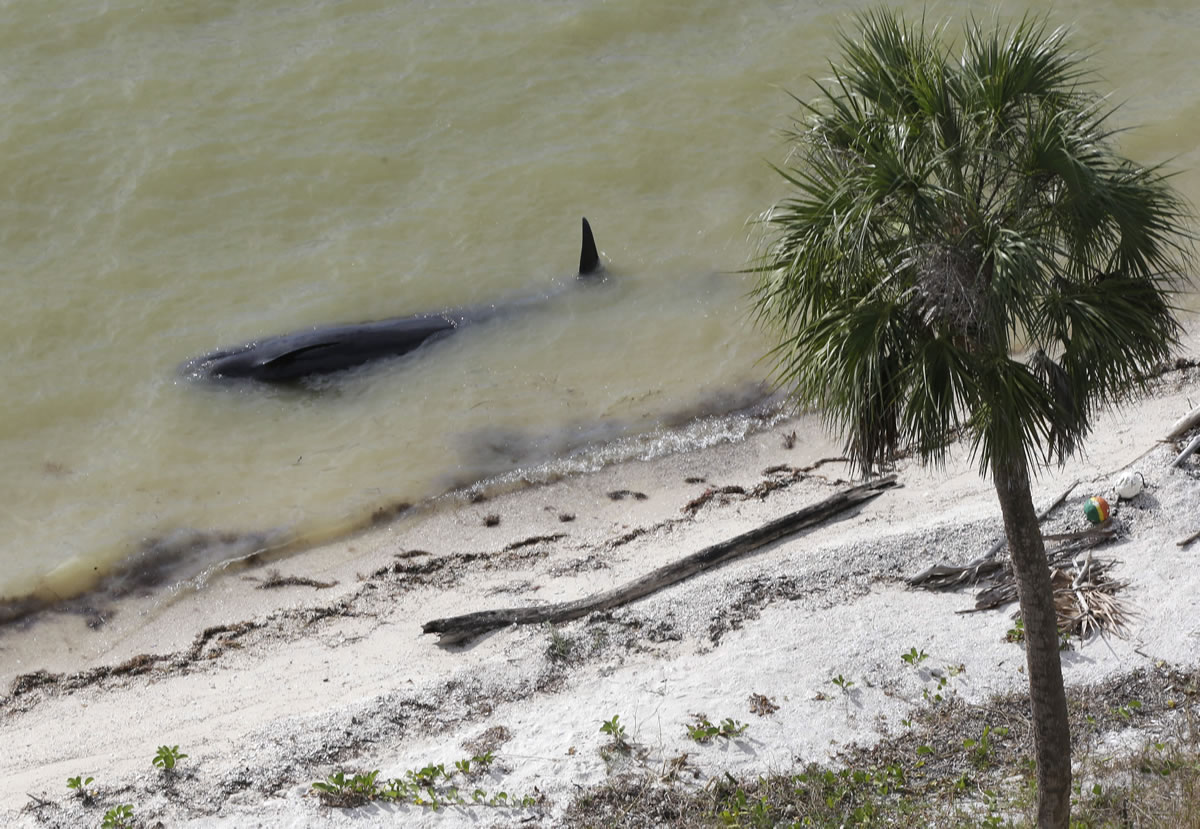MIAMI — They won’t leave their dead behind.
That might be one of the reasons why a pod of 41 short-finned pilot whales remains stranded in shallow waters near Highland Beach at Everglades National Park. On Tuesday, nine whales were beached and six died overnight. On Wednesday, four more were euthanized.
Officials of the National Park Service, the U.S. Fish and Wildlife Service and the National Oceanic and Atmospheric Administration have been trying to herd the whales into deeper water, without luck.
“Pilot whales are a particularly cohesive species, which is why they tend to mass-strand,” said Blair Mase, the Southeast Region Marine Stranding Coordinator for NOAA. “There may be members of their group that are ill and beach themselves, and the other whales stick with the pod and remain in the area.”
But the remoteness of their location — a one-hour boat ride from either the north or sound ends of the park, with no cell phone signal available — is making rescue efforts for the surviving whales difficult.
Removal of the carcasses is difficult because the beach is out of reach for the vehicles and machines needed to move the massive animals.
Pilot whales range from 12 to 18 feet in length and can weigh 2,000 to 6,000 pounds. The mammals are common in tropical waters, including the Gulf of Mexico off Highland Beach, near Naples.
“Given the scenario of where the dead whales are and our inability to move them offshore, the outcome of this situation may not be good,” Mase said.
“We want to set realistic expectations for the public. We don’t know how long these whales have been out of their normal habitat,” she said.
Pilot whales are a deep-water species and, because Highland Beach is warmer and shallower, they may be suffering from dehydration and a lack of food, Mase said. Some of them may be ill, she said.
“The optimal outcome would be for them to continue to swim away from the shore. But there are sandbars and shallows they would have to navigate.”
The last instance of a pilot whale mass-stranding was in Fort Pierce in 2012, when 21 whales beached there and five were saved. But that location was closer to a city and easier for rescuers to reach.
Although the whales are swimming freely, they are out of their natural habitat — deep water — which poses an increasing danger to their survival.
“The water in Highland Beach is really shallow, and they haven’t been able to swim back to sea,” said Everglades National Park spokeswoman Linda Friar.
“We’re working right now to try to get them out, but it could take some time.”
Friar said that although beached whales are not a common occurrence at the park, the phenomenon is not out of the ordinary, either.
“This is something this particular species does, but there’s no clear reason why,” Friar said. “They even tend to re-beach themselves after they’ve been freed.”
Friar indicated another team would head back out Thursday to try once again to herd the whales into deeper waters.
The researchers also will determine the health of the whales and, if necessary, euthanize those beyond help.



